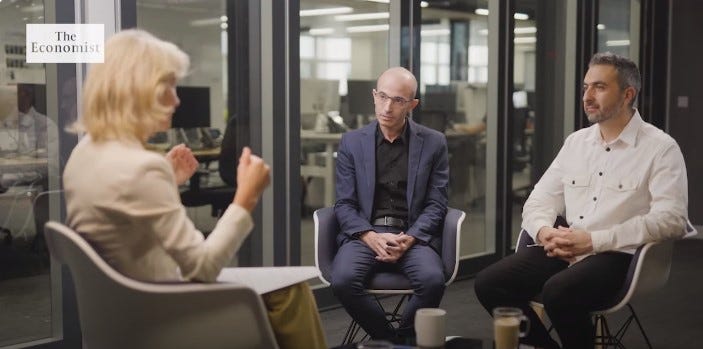Tech Is Booming, Trust Is Collapsing
In a debate facilitated by The Economist, Yuval Noah Harari and Mustafa Suleyman sit down for an open discussion about the future of AI. (YouTube link here)
Harari is a historian, author of several best-selling books such as “Sapiens: A Brief History of Humankind”, and he is one of the most well-known thinkers on AI dangers. Suleyman is the co-founder of…




